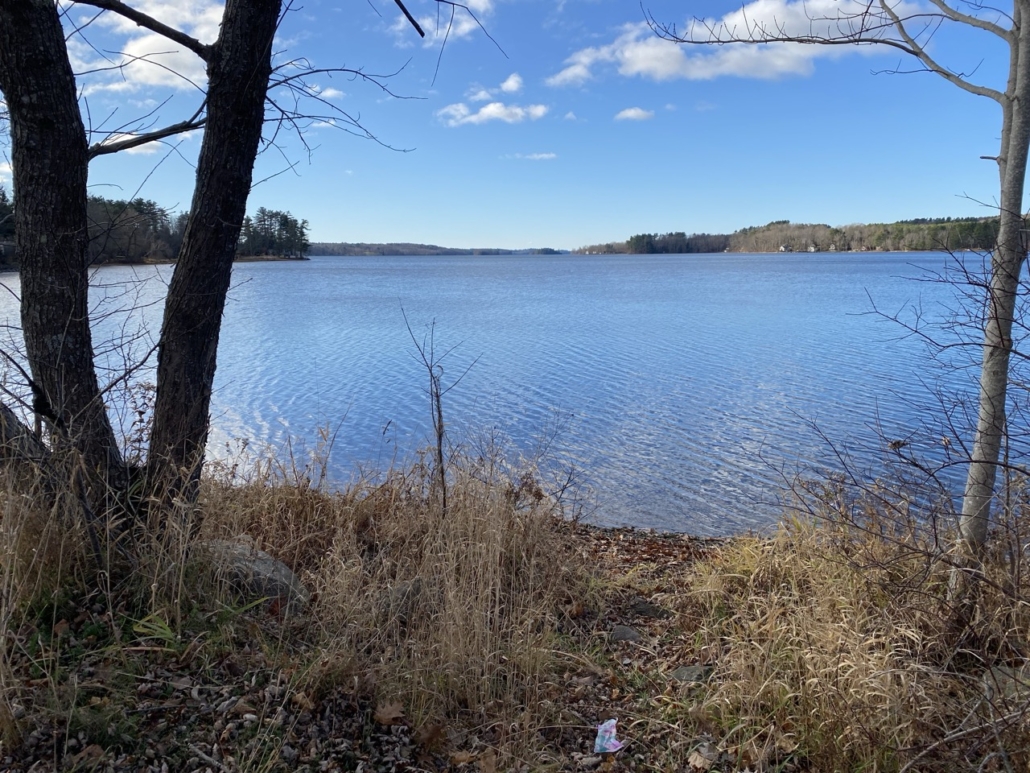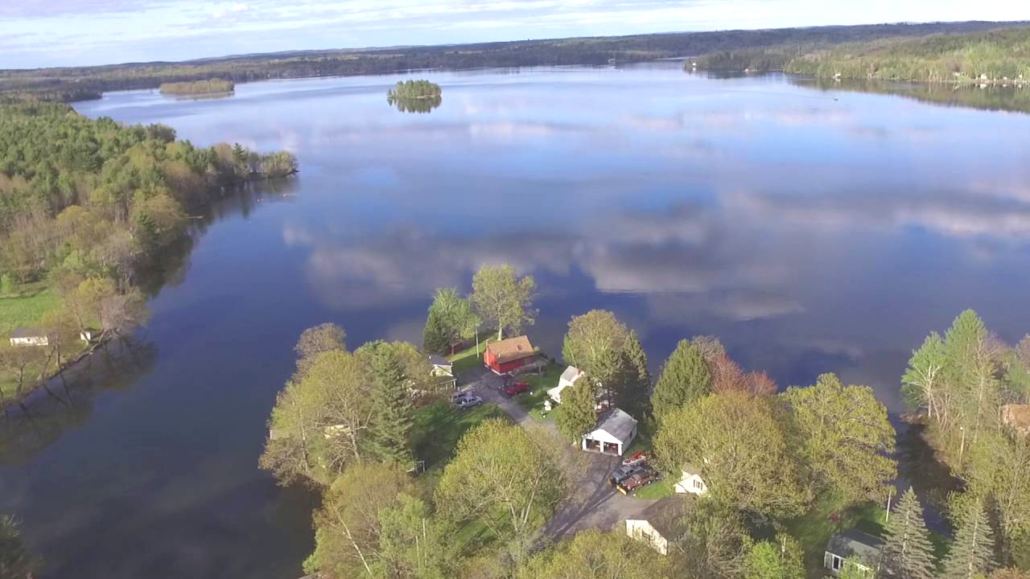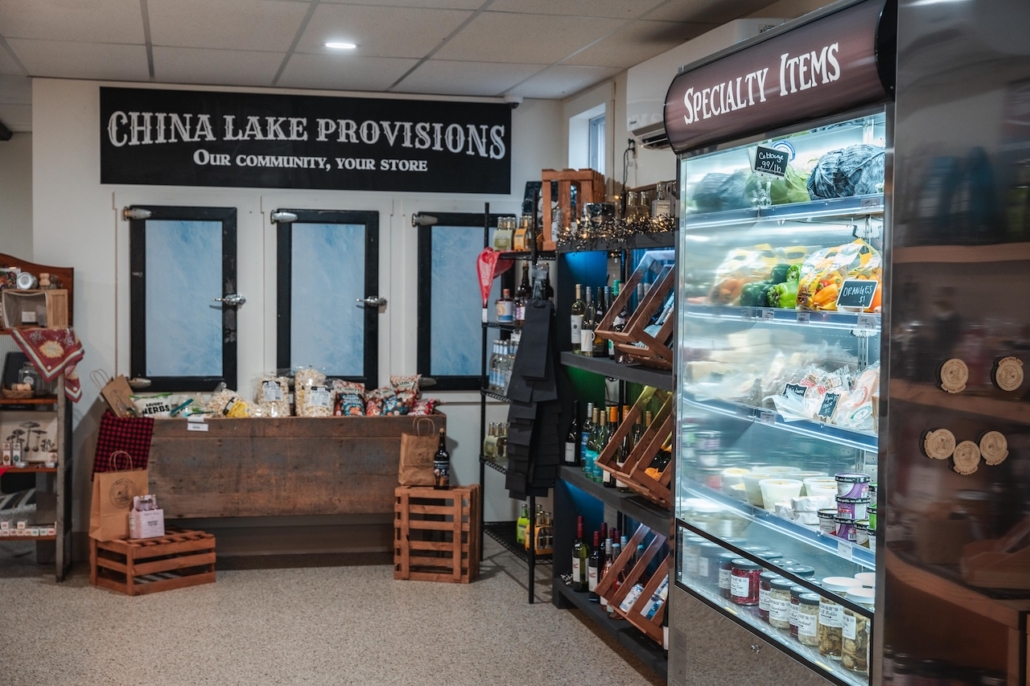CRLA inspectors find no invasive plants in China Lake, Three-mile & Webber ponds
by Gerry Boyle
The boat inspection period at China area lakes was extended by a month, an additional day was added to the weekly schedule, inspections were extended to cover anchors and other gear, and the weather cooperated.
All of that added up to 20 percent more boat inspections, and more plant fragments found, but the same result as in past years – not a single invasive discovered.
That was the very good news in the 2024 Courtesy Boat Inspection report from the China Region Lakes Alliance. The water bodies covered by the CRLA inspections – China Lake, Three-mile Pond, and Webber Pond – showed no evidence of invasive plants, at a time when other lakes and ponds in the region and state are grappling with Eurasian milfoil, hydrilla, and other environmentally damaging species.
“We didn’t have any confirmed invasive on any of the lakes or any of the launches,” said then-CRLA Director Jessie Mae MacDougall.
A total of 1,327 boat inspections were conducted at the three water bodies this year, up from 1,138 in 2023. While 111 plant fragments were found, none were determined to be invasive plants, after examination by the state Department of Environmental Protection or Lake Stewards of Maine. There were a couple of occasions where analysts asked for additional photographs of plant fragments, MacDougall said. “We keep them in a refrigerator until it’s deemed not a problem,” she said.
That was the outcome for the China-area samples, but other vegetation collected in Maine this summer were deemed a problem. Inspectors discovered more than 100 invasive plants, mostly from boats inspected as they were leaving affected water bodies. As most boaters who trailer their boats hop from one Maine lake to another, preventing the spread of invasives is crucial.
Lake associations in the Belgrade and Winthrop areas, just 20 miles from China Lake, for example, have been grappling with invasives for years. In other New England states, the problem is serious – and expensive. A study cited by the Maine Department of Environmental Protection, shows that invasive plants can cost $12,000 in lost property value for each shoreline owners. Controlling the problem mechanically or chemically can cost $200 to $2,000 per lake-acre every year, the study says.
In the China area, inspectors did come up with more plant fragments than in past years, which may be the result of the inspections being extended until the third week in September, a full month later than had been customary. MacDougall said September is a high-growth season for aquatic plants in Maine lakes, and more vegetation closer to the surface results in more plants being caught on propellers and hulls.
In addition, inspectors were dispatched singly, rather than in teams of two – which had been past practice – which expanded coverage without increasing costs. The inspectors, many of whom are high-school students, were provided with safety training and emergency numbers. “We knew everybody was comfortable being there by themselves,” MacDougall said. “And things were great. Generally, people are willing to assist.”
The China-area boat inspections are relatively convenient compared to invasive protection in place in other parts of the country, and in New England, she said. In some parts of the western U.S., boats and trailers are put in a decontamination station that kills all organisms. In some states, inspections are mandatory, and administered, not by volunteers, but by state inspectors. Only a boat with an inspection tag is allowed to be launched.
It’s a serious effort, for good reason.
In addition to having to contend with invasive plants, communities are seeing threatening invasive organisms like the spiny water flea and the zebra mussel. The spiny water flea, which is native to Eurasia, was brought to this country in the ballast of freighters. The organisms, which outcompete native fish and plankton for food, were recently found in Lake Winnipesaukee, in New Hampshire. Zebra mussels, which can foul water pipes, are established in lakes in New Brunswick, Canada, just over the Maine border.
“It’s especially important to keep vigilant about those organisms as well,” MacDougall said. “That’s why we’re trying to encourage the inspectors to use language that includes the animals, the insects – everything – so that people understand that it’s not just plants that they’re concerned about.”
“These inspections are absolutely crucial to keeping our area lakes and ponds free from invasives that could have devastating effects,” said Stephen Greene, president of China Lake Association, which helps fund and manage CRLA, with grants from the town of China. “We can’t afford to let our guard down.”
Responsible journalism is hard work!
It is also expensive!
If you enjoy reading The Town Line and the good news we bring you each week, would you consider a donation to help us continue the work we’re doing?
The Town Line is a 501(c)(3) nonprofit private foundation, and all donations are tax deductible under the Internal Revenue Service code.
To help, please visit our online donation page or mail a check payable to The Town Line, PO Box 89, South China, ME 04358. Your contribution is appreciated!






Leave a Reply
Want to join the discussion?Feel free to contribute!